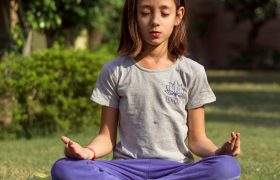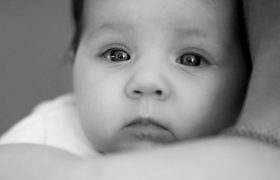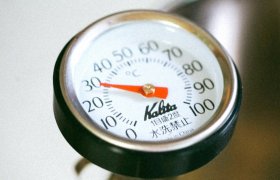Baby’s First Winter: Tips for New Parents
1
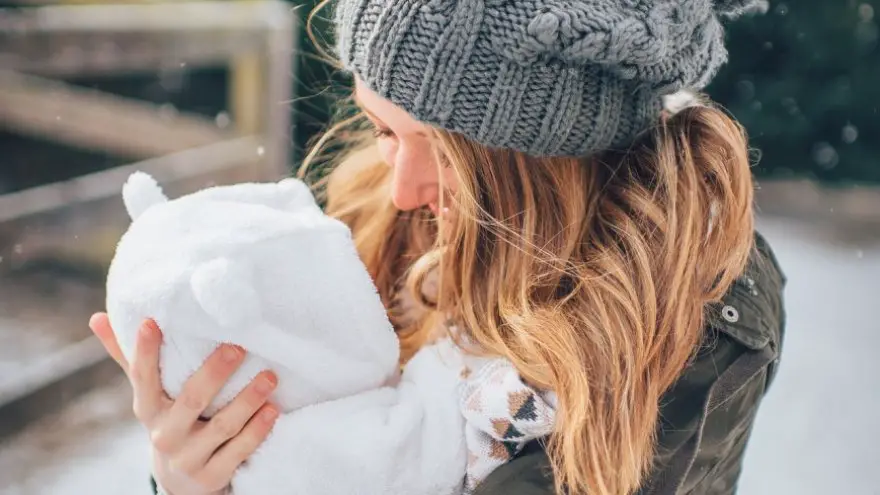
Whether your baby is a newborn in the winter or a few months old, the first winter season is a learning experience for both of you. From avoiding pitfalls to making sure your baby is comfortable, to enjoying the season there are a few time-tested tips and tricks that moms over the millennia have used and approved for baby’s first winter.
Staying warm
In the car seat:
- Make sure that you’re not bundling your baby up too tight with too many layers lest they overheat, but also because their car seat may not function properly in an emergency if the straps are too loose because they are wearing a coat. Most recommendations are to put your baby in their regular warm clothes and then add a blanket on top of the car seat straps. Keeping the straps of the car seat adjusted properly is what keeps your baby safe. Trying to tighten them over a coat or a blanket reduces their ability to function properly and may even be dangerous. Anything that comes between your child and the straps of their car seat are suspect. Aftermarket props for your car seat can be cute but many of them are not tested at all for safety so it’s best to avoid them.
In a stroller:
- A winter trip to the zoo can be doable if you remember to bundle up your baby in a way that keeps the wind from getting to them. That means a hat, some thick socks and maybe even a snowsuit if the winter wind is especially biting, most snowsuits have little mitts that pull over your baby’s hands. Remember to make walks shorter than you would in nice weather and to remove any puffy items of clothing like coats or snowsuit before putting your baby in the car seat.
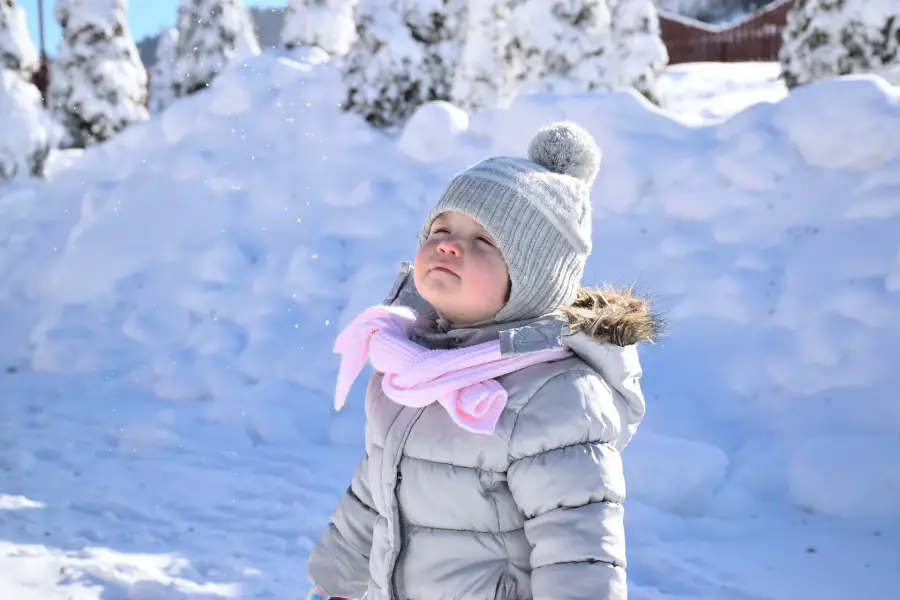 In a carrier:
In a carrier:
- Rule one is to keep your baby’s airway clear so make sure they are forward facing and avoid bulky scarves that they may become tangled in. Purchase a coat a few sizes up so you can zip it around yourself and your baby, but make sure not to zip it higher than the base of the baby’s neck so they will be free and clear of any obstruction. A hat is a great idea in this situation as well to keep baby’s head from getting too cold.
In bed:
- Pediatricians recommend avoiding pillows and blankets in the crib until babies are over 12 months old, so stick to one piece sleepers that are cotton to keep your baby warm in the winter when they’re sleeping. Making sure their room is a comfortable temperature is a safer way to warm them up than relying on too many layers of clothes or blankets anyway. Your baby should be about the same amount of comfort as you are but may need a thicker set of pajamas than you do, and the only way to know is to observe your baby and try it out.
Staying well
- Make sure that you keep young babies home and away from people during this season as much as possible. What may be a mild cold for an adult can make your baby feel miserable. While your baby is too young to be vaccinated keep them safe from diseases like whooping cough that are going around again by having strict rules regarding hand washing and encouraging people who feel off or like they are coming down with something from touching or handling your baby. Feel emboldened to request no kisses during the coldest parts of the year as people may be carrying an illness that they aren’t aware of. The winter brings us inside more and we can catch colds easier due to the confined spaces and increased interactions.
- The dry winter air can cause a few issues for your baby’s skin this winter as well, so you might want to change up their bath routine to every 3-4 days unless they are super messy. Bathing in warm but not hot water and using a moisturizer after the bath can help as well. Spot cleaning instead of a full bath between bathing days is ideal, but babies being babies they may need a full bath more often than you’d like.
- Keeping a humidifier on hand in case your baby gets a little stuffy can help them overcome some of the discomfort and inflammation caused by dry air and also make them more comfortable if they do end up getting a cold. Make sure it’s in a safe space that baby can’t reach and that the cord is tucked away so an exploring little one can’t pull it down onto themselves.
- Know the signs of illness and when to call a doctor. If your baby is running a fever or has a rash it’s time to go get them checked out. While your baby will likely catch a cold at some point, it’s always smart to take them into the doctor for their first one and for any subsequent illness where they are having symptoms that they haven’t had before.
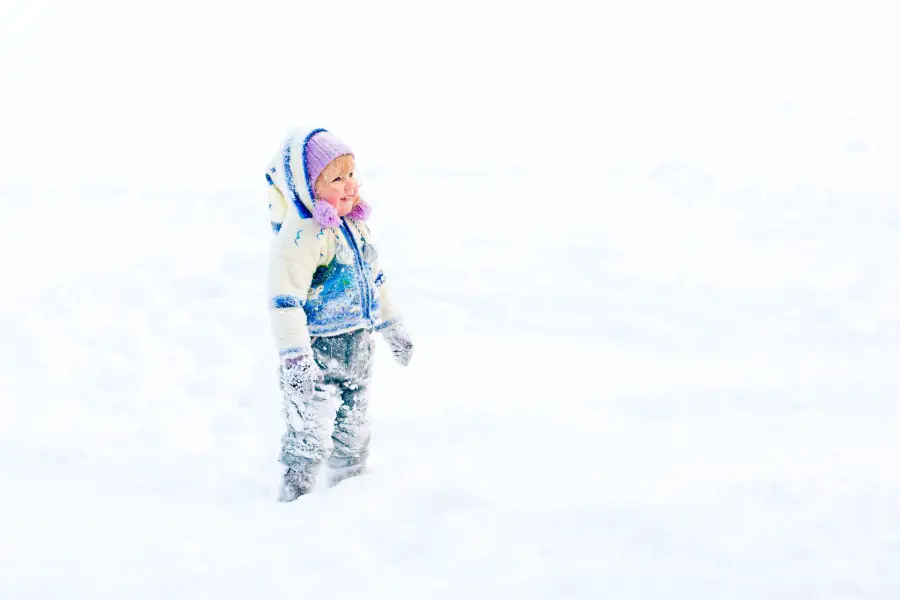 Staying involved
Staying involved
- Winter holidays bring a family together and that’s no different when you have a baby in tow. Bring a few outfits along in case the weather changes suddenly and pack more socks than you think you need as babies are rockstars at kicking them off and losing them. Make sure to bring an extra hat as well, you don’t want to be caught without one if the first one goes missing.
- First snow can be an amazing time to snap a few pics of your baby but make sure you are doing so safely, put down a barrier between your baby and the wet snow, and don’t let them sit for too long as hypothermia and frostbite can get severe quickly in babies that aren’t able to regulate their body temperature perfectly yet. Be mindful of snow burn a sunburn that babies can get from the reflected light of the snow and protect their eyes as the reflected light from the snow may be very bright for them.
- Be sure to baby proof your house if you decorate or keep candles or warmers around that your baby might be interested in. You definitely don’t want a trip to the ER in the midst of a cold front if you can avoid it.
Having a baby during the winter can be a magical time and while it’s a little more difficult than other seasons there’s no need to hermit away, with a little bit of planning and a lot of patience your baby can be a winter expert.


